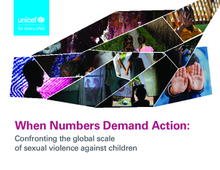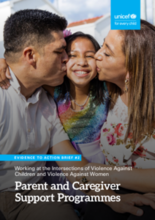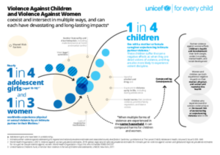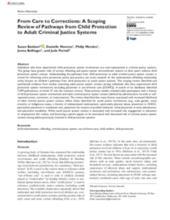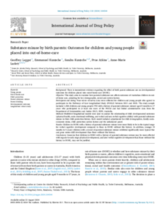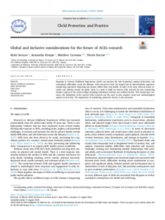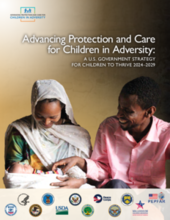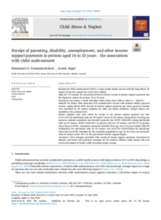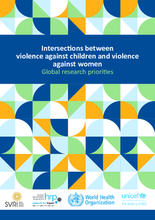Displaying 21 - 30 of 1090
This UNICEF publication presents the first-ever global and regional estimates of sexual violence against children. It narrates through numbers the tragic reality of sexual violence, amplifying victims’ voices.
A well-established and growing body of evidence demonstrates the multiple ways in which violence against children and violence against women intersect or overlap. This brief summarizes what is known about the potential for parent and caregiver support programmes to reduce both violence against children and violence against women, and why addressing these intersections matters for children’s protection and well-being.
This infographic by UNICEF illustrates how violence against children and violence against women coexist and intersect in multiple ways, and can each have devastating and long-lasting impacts.
This scoping review identified and synthesized evidence from studies across the globe examining adult justice system contact among individuals who have experienced child protection system involvement (including placement in out-of-home care [OOHC]).
This study aims to examine how parental substance use affects outcomes of Australian children in out-of-home care, adjusting for key demographic, social and system factors.
This commentary discusses the limitations of the current Adverse Childhood Experiences (ACEs) research and the need to also consider social and methodological aspects of adversity. The importance of considering protective factors is also discussed.
The Thrive Strategy incorporates updated evidence on children in adversity and their needs, and considers the ongoing impact of global events such as the COVID-19 pandemic, spotlighting the polycrisis that children in adversity and families are experiencing.
This study was based in Southern Australia and aimed to examine the association between child maltreatment and the receipt of income support payments and the budgetary impact for persons 16 to 33 years.
Around the globe, an estimated 27 million people are exploited for labor, services, and commercial sex. Through force, fraud, and coercion, they are made to toil in fields and factories, in restaurants and residences. Traffickers prey on some of the world’s most marginalized and vulnerable individuals – profiting from their plight. Among these individuals are children who are forced into criminality, sex trafficking, child soldiering, and in some countries the forced marriage of children has been defined as a form of exploitation.
This global report describes the process used to determine the priorities for research on the intersections between violence against children and violence against women, and the top 10 research questions identified.

